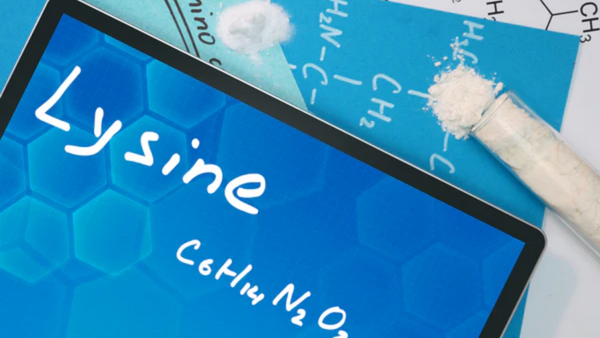Burnout syndrome describes a state of emotional, mental and physical exhaustion. Burnout means something like burned out.
Burnout syndrome occurs as a result of a permanently high workload over a long period of time. Too much stress and high pressure to perform and meet deadlines also contribute to the development of burnout syndrome. It is often accompanied by anxiety, depression and sleep disorders .
People with burnout syndrome no longer feel able to cope with daily challenges and their work performance drops significantly. In severe cases, those affected are no longer able to work.
Relaxation techniques such as yoga, meditation and autogenic training play an important role in the treatment of burnout syndrome. It is also crucial to identify stress factors in everyday life and, if possible, eliminate or reduce them.
Burnout syndrome is usually only treated with medication if other symptoms such as anxiety and depression occur.
Micronutrients can help with burnout syndrome. High levels of stress can increase the need for certain nutrients. Many nutrients are also involved in energy production. In addition, nerve cells, which are particularly stressed during periods of high stress, require a number of essential nutrients.
IT'S WORTH READING!
AT THE END OF THE ARTICLE WE HAVE PROVIDED YOU A VOUCHER CODE.
B vitamins
B vitamins are also called nerve vitamins because they are essential for nerve function. They also have important functions in energy metabolism.
Vitamin B6 is involved in the production of many neurotransmitters that are important for mental health and stress management. These include the "happy hormones" dopamine and serotonin, as well as the "calming" neurotransmitter GABA and the stress hormone noradrenaline. [1]
Some studies suggest that taking B vitamins can have a positive effect on stress and mental health problems. [2]
Omega-3 fatty acids
There seems to be a connection between a lack of omega-3 fatty acids and psychological problems such as depression and mood swings. There is also evidence from studies that omega-3 fatty acids could help with depression. [3] [4]
Omega-3 fatty acids are an important component of cell membranes and therefore also of nerve cells. Omega-3 fatty acids also have an anti-inflammatory effect and can counteract chronic inflammation, which is suspected of being involved in the development of psychological problems.

Tryptophan
Tryptophan serves as a building block for the happiness hormone serotonin. This neurotransmitter is important for inner satisfaction and balance. Depression is often caused by an imbalance in the serotonin balance. Serotonin reuptake inhibitors (SSRIs) are therefore used to treat depression, which ensure that serotonin has a longer effect.
Studies suggest that serotonin acts similarly to SSRIs and can have a positive effect on mood. [5]
Taurine
The amino acid taurine is important for nerve cells and has an important protective function for nerve cells as it has anti-inflammatory and antioxidant properties. Taurine also has an inhibitory and calming effect on the nervous system. [6]
magnesium
Magnesium is a mineral that is involved in an incredible number of processes in the cell. These processes can also influence mood and play an important role in the stress response. Magnesium can also inhibit the release of the stress hormones adrenaline and noradrenaline. Stress also increases the need for magnesium.
Some studies show that taking magnesium may help relieve anxiety and depression. [7]

Vitamin D
Strictly speaking, vitamin D is not a vitamin, but a hormone. The body can produce it itself with the help of sunlight.
There is a strong connection between a lack of vitamin D and depression. For this reason, depressive moods are particularly common in winter.
Taking vitamin D for mental health problems has produced mixed results so far. But some studies indicate that taking vitamin D can alleviate depressive moods. [8]
Antioxidants: Vitamin C, Vitamin E, Zinc, Selenium
Antioxidants protect nerve cells from free radicals.
Studies indicate that vitamin C has an antidepressant effect.
Vitamin E appears to specifically protect brain regions that play a role in the development of depression from oxidative stress.
Zinc can promote the survival of nerve cells. Studies have shown that zinc could help with mental health problems. [9]
There is evidence that selenium can relieve anxiety and fatigue. [10]
L-carnitine and coenzyme Q10
L-carnitine and coenzyme Q10 are needed to generate energy in the mitochondria, the power plants of our cells. Coenzyme Q10 is part of the electron transport chain that is used to generate energy in the mitochondria. L-carnitine is important for the transport of fatty acids into the mitochondria, from which the cell then generates energy.
In cases of burnout syndrome and chronic stress, a good energy supply is particularly important. [11]
Conclusion: A good supply of micronutrients plays an important role in burnout syndrome
A deficiency in certain vitamins, minerals, amino acids and essential fatty acids is associated with psychological problems and burnout. These nutrients are important for energy production and for the function of nerve cells. The body also needs many micronutrients for the stress response.
WE HAVE YOU 10 % VOUCHER FOR OUR
Vitamin C , Vitamin B Complex , Vitamin B Complex Forte , Vitamin B12 , Vitamin D liquid , Vitamin D capsules , Selenium drops, Selenium tablets , L-tryptophan , Taurine , Omega-3 , Zinc , L-carnitine and Coenzyme Q10
PROVIDED AND HOPE TO BRING YOU JOY WITH IT.
SIMPLY COPY THE FOLLOWING COUPON CODE
AND ENTER IT AT CHECKOUT:
ENERGY+V10
To the products
[1] https://pubmed.ncbi.nlm.nih.gov/29685187/
[2] https://pubmed.ncbi.nlm.nih.gov/20454891/
[3] https://www.ncbi.nlm.nih.gov/pmc/articles/PMC5611753/
[4] https://pubmed.ncbi.nlm.nih.gov/25830700/
[5] https://www.ncbi.nlm.nih.gov/pmc/articles/PMC4728667/
[6] https://pubmed.ncbi.nlm.nih.gov/27938518/
[7] https://www.ncbi.nlm.nih.gov/pmc/articles/PMC5452159/
[8] https://pubmed.ncbi.nlm.nih.gov/26585952/
[9] https://pubmed.ncbi.nlm.nih.gov/29232566/

















